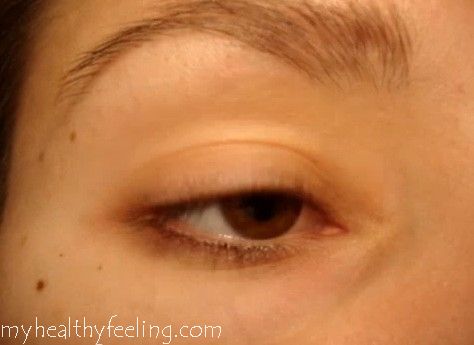
Eye twitching is a blinking disorder of the eyelids and is involuntary in nature. It is often referred to as spasm of the eye muscle and in medical terms it is called blepharospasm. The disorder is not a cause for concern and does not result in any serious complications. However, it is widespread affecting millions of individuals annually and is more common among the older adults.
The muscles that are present around the eyelids may sometimes contract involuntarily and uncontrollably. This leads to eye twitching.
There are many causes of eye twitching and some of them are discussed below. Before we proceed to the explanation, let us first know the different types of eye twitching.
Different types of eye twitching
There are several kinds of eye twitching which are listed below:
- Minor twitching of the eye usually tends to occur spontaneously and is very common. It has a close co-relation with increased fatigue and stress. However, it does not require any formal treatment and generally tends to disappear on its own.
- Essential eye twitching is a type of spasm of the eye muscles, which results in the involuntary closure of the eyelids. Such a condition can last from a few seconds to a few minutes to even some hours. In the initial stages of the condition, the affected individual may endure intermittent blinking or winking or a pinching sensation of the face. At the time of advanced or final stage, there may be forceful closure of the eyelids which may eventually result in blurred or impaired vision.
- Hemifacial spasm is kind of muscle spasm of the face that affects only one side of the facial area. It is caused due to the compression of a blood vessel present in the facial nerve. In almost all such cases, the condition or the spasm begins near the eye and then travels down to the affected side of the face.
Causes of eye twitching
Eye twitching may result in twitching of either the lower eyelid or the upper eyelid and can be caused due to a number of reasons that range from excessive stress or the presence of an injury to irregularities in the functioning of the brain.
Some of common causes of eye twitching are given below:
- The most common cause of eye twitching among affected individuals is the lack of sleep or inadequate sleep
- Research studies have indicated that the presence of excessive levels of stress can decrease the life expectancy, weaken the immune system as well as result in many psychological abnormalities. Hence, stress is considered to be another leading cause of eye twitching and it is recommended that all individuals should take adequate care to alleviate stress
- Individuals who lead a sedentary lifestyle or work excessively can become exhausted and experience increased fatigue. This can also trigger eye twitching.
- Prolonged levels of concentration and staring at the computer screen or televisions, etc. can lead to eye muscles strain, resulting in eyelid spasms.
- A diet that is deficient in the essential vitamins can also lead to eye twitching. The best cure for such causes is to consume a healthy diet that comprises of all the necessary minerals and vitamins
- We generally tend to strain our eyes a lot more while performing certain activities such as driving, watching TV or reading. Such excessive strain on the eyes leads to additional stress of the eye muscles, resulting in limited supply of light to the pupils. This prevents adequate focusing which may lead to eye twitching.
- Any history of allergies can lead to irritation of the eyes for even the slightest of causes and may eventually result in eye twitching and spasms.
- Caffeine influences the central nervous system and acts as a stimulant and hence excessive caffeine intake can cause eye twitching.
- Any kind of physical injury or trauma, stress or tension can result in contraction or compression of nerves in the face or the neck which can cause eye twitching
- There are certain drugs that cause eye twitching as a side effect. Hence, individuals should be aware of all the possible side effects before consuming medications.
- The long-term intake of benzodiazepine or its withdrawal can often lead to eye twitching.
- There are several types of neurological conditions and disorders that can result in eye twitching
- Other possible causes of eye twitching are environments filled with polluted air, increased exposure to bright lights, increased dryness of the eyes, etc.
Treatment of eye twitching
- The use of sunglasses and eye drops, washing the eyes with cold water, leading a stress free life as well as adequate sleep are some of the home remedies to treat eye twitching.
- Medications and biofeedback are recommended in cases of eye twitching that do not respond to home remedies.
- Another method to treat eye twitching is the injection of small amounts of botulinum into the muscles which help in the relaxation of spasms.
- If cases of eye twitching persist, then individuals should visit a doctor for proper diagnosis and treatment